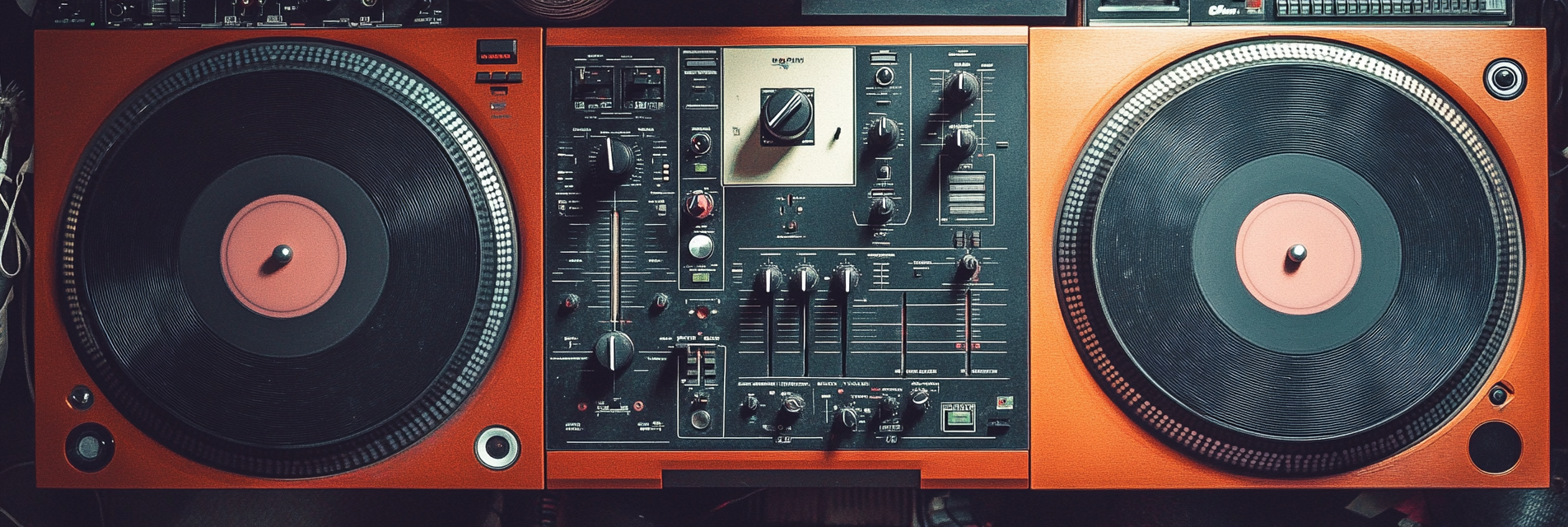
Timing and Transitions – Keeping the Flow Between Songs Smooth to Maintain Energy
Master the art of seamless transitions and flawless timing to keep your audience on their feet from start to finish
One of the most critical yet often overlooked aspects of live performance is the flow between songs. The right timing and smooth transitions can keep your audience engaged and maintain the momentum of your show. Conversely, awkward pauses or abrupt changes can break the energy and disrupt the emotional journey of your performance. In this article, we’ll break down techniques for perfecting transitions and timing, share real-world examples of seamless set flow, and offer tips to help you bridge songs in a way that feels natural and powerful.

djLooper helps you turn simple music shows into incredible performances that wow your crowd
No more stress—just pure, professional sound that makes you shine
Create your free account
The Importance of Timing in a Live Set
Creating a Continuous Musical Journey
A well-timed transition between songs can turn your set into a continuous, immersive musical journey. When you string songs together with minimal dead air, the energy remains high and the audience stays engaged. Think of your setlist as a story, where each song flows into the next to build an emotional arc.
Avoiding Dead Air and Disruption
Dead air is the enemy of a dynamic performance. Whether it’s an unexpected pause or a long break between songs, silence can break the momentum you’ve built up. Many performers use short instrumental fills, drum solos, or pre-recorded interludes to cover transitions, ensuring that the energy remains constant.
Maintaining Audience Engagement
Seamless transitions not only enhance the musical flow but also keep the audience involved. When there’s no awkward gap between songs, people remain immersed in the performance. This continuous energy helps the audience feel that every moment on stage is intentional and connected, which in turn keeps their excitement high throughout the show.
Real-World Examples of Great Timing
Artists like U2 and The Rolling Stones are renowned for their flawless transitions during live performances. Their ability to move from one song to the next without missing a beat keeps the energy in the arena high. Studying these examples shows that a little planning and practice can make a huge difference in how your set is perceived.

Techniques for Smooth Transitions
Use of Interludes and Instrumental Breaks
Interludes or short instrumental breaks can serve as bridges between songs. These segments allow the band to reset and prepare for the next song while keeping the audience engaged. A well-executed drum fill or guitar riff can make the transition feel natural and maintain the flow.
Key and Tempo Modulation
Transitions can be challenging when moving between songs in different keys or tempos. One solution is to gradually modulate the key or tempo using a short instrumental bridge that smoothly shifts the mood. This technique helps ensure that changes between songs feel organic rather than jarring.
Pre-Set and Rehearsed Transitions
Rehearsing your setlist with a focus on transitions is essential. Run through your entire set and practice the moments between songs until they become second nature. By ironing out any awkward pauses or mismatched timings during rehearsal, you can deliver a seamless live performance.
Crowd Engagement During Transitions
Sometimes, a brief moment of interaction can serve as the perfect bridge between songs. A quick shout-out, a call-and-response, or a short story can fill the gap and reset the energy. This not only keeps the audience engaged but also reinforces the connection between you and the crowd.

Practical Rehearsal Strategies for Timing
Timing Drills in Rehearsals
Set aside specific time during rehearsals to focus solely on timing and transitions. Use drills where you run through song pairs repeatedly to identify and fix any awkward gaps. Recording these drills can help you hear what needs improvement and allow you to refine your transitions over time.
Using a Metronome or Click Track
For bands, practicing with a metronome or click track can help ensure that everyone is perfectly in sync, especially during transitions. This tool provides a steady beat during rehearsals, making it easier to execute smooth transitions and maintain a consistent tempo throughout your performance.
Mapping Out Your Setlist
Plan your setlist order with transitions in mind. Identify the best points for natural breaks, such as between a high-energy chorus and a slower bridge. This planning can help you visualize the flow of your set and ensure that every song leads seamlessly into the next.
Adapt On the Fly
Live shows are unpredictable. If you notice the crowd’s energy dipping during a transition, be ready to adjust – whether by shortening a pause, ramping up the next song, or adding a quick interactive moment. Flexibility is key; trust your instincts and the energy of the room to guide your adjustments.

Final Tips for Seamless Live Transitions
Record, Review, and Refine
Consistent rehearsal and recording of your set will help you identify areas where transitions can be smoother. Use this feedback to continuously refine your performance and ensure a seamless flow.
Develop a Signature Transition Style
Some performers become known for their unique transitions – whether it’s a particular drum fill or a recurring interlude. Developing your own signature style not only sets you apart but also creates a sense of continuity throughout your set.
Coordinate with Your Sound Engineer
Work closely with your sound engineer during soundcheck to adjust monitor mixes and ensure that your live mix supports your transitions. Their expertise can help you smooth out any discrepancies and maintain the overall flow of your performance.
Stay Calm and Trust Your Preparation
Even if a transition isn’t perfect, maintain a calm, confident approach. Trust the work you’ve put into rehearsals, and keep the energy flowing. A composed performer can recover from minor mishaps without the audience missing a beat.
djLooper helps you turn simple music shows into incredible performances that wow your crowd
No more stress—just pure, professional sound that makes you shine